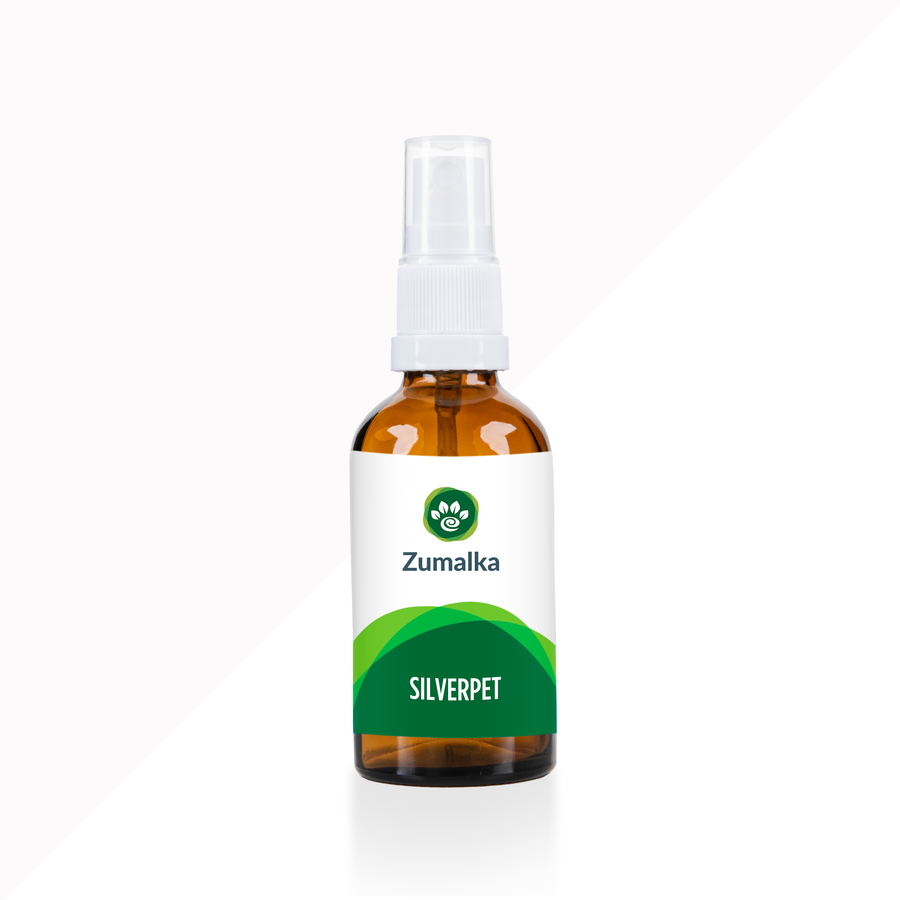Beyond the Bowl: Expert Tips for Choosing Your Pet's Nutritionist
List of Contents
- Pet Nutrition Specialists Explained: Roles, Credentials, and How to Choose
- What Makes a Great Pet Nutritionist? Key Traits to Know
- Essential Questions to Ask During a Pet Nutrition Consultation
- Is It Time to See a Pet Nutrition Expert? How to Know
- Why Premium Probiotics Matter for Your Pet’s Digestive Health
- Key Takeaways
- FAQs
Proper nutrition directly affects your pet’s health, longevity, and quality of life. An experienced pet nutritionist can help prevent illness and optimize their well-being.
With countless pet food brands, trendy diets, and conflicting advice, choosing the right nutrition can feel overwhelming. A qualified pet nutritionist helps cut through the noise to create a plan tailored to your pet’s unique needs.
Moreover, a pet nutritionist offers expert insight to develop a personalized diet that supports your pet’s specific health needs and lifestyle. Their guidance ensures balanced nutrition, helping prevent issues before they start and promoting lifelong wellness.
Pet Nutrition Specialists Explained: Roles, Credentials, and How to Choose

Board-certified veterinary nutritionists (ACVN Diplomates) are licensed veterinarians with advanced training in animal nutrition. After completing years of specialized clinical work, research, and teaching, they must pass a rigorous exam to earn certification and provide expert, evidence-based dietary guidance.
Animal nutritionists are uniquely qualified to manage the diets of both healthy pets and those with medical conditions. Their expertise includes formulating commercial pet foods, supplements, and customized home-prepared diets to meet complex nutritional needs.
To find a board-certified veterinary nutritionist, visit the American College of Veterinary Nutrition at ACVN.org. This trusted resource offers a searchable directory of qualified specialists for your pet’s nutritional needs.
Other qualified professionals
- Veterinary Technician Nutrition Specialists are credentialed technicians (CVT, RVT, or LVT) who complete at least three additional years of focused nutrition training. After passing a rigorous credentialing exam, they are qualified to support veterinarians in delivering advanced nutritional care.
- Animal nutritionists with a PhD or MS have advanced academic training in nutrition and offer deep, science-based expertise. While they may not focus on individual patients, their knowledge supports evidence-based pet food formulation and nutritional research.
- Your primary care veterinarian is a trusted resource for essential pet nutrition guidance. They can assess your pet’s dietary needs and refer you to qualified specialists for more advanced nutritional support when needed.
Unreliable pet nutrition sources and how to spot them
Be cautious of self-proclaimed pet nutrition “experts” who hold minimal online certifications, sometimes earned in just weeks. Genuine nutritional expertise requires extensive education, clinical experience, and recognized credentials.
While well-intentioned, advice from pet store staff, breeders, trainers, or groomers often lacks formal nutrition training. For medical or dietary decisions, rely on qualified veterinary professionals, not sales-driven recommendations.
Not all veterinary advice is created equal. Some veterinarians may offer nutritional guidance that contradicts established standards from organizations like WSAVA or AVMA. Always verify their credentials and ensure recommendations align with trusted, evidence-based guidelines.
Additionally, websites, blogs, and books by individuals without verifiable credentials often spread misleading or incomplete pet nutrition advice. Cookbooks not authored by qualified experts can be especially risky, potentially promoting unbalanced diets that harm your pet’s health.
What Makes a Great Pet Nutritionist? Key Traits to Know
A top-tier pet nutritionist should have a solid educational background in animal science, veterinary medicine, or nutrition. Certifications from respected organizations like the ACVN add credibility and ensure evidence-based expertise.
An experienced pet nutritionist should have a proven track record of helping animals with diverse dietary needs. As with choosing a pet homeopathy expert, ask for client references and review testimonials to ensure credible, results-driven care.
Pets with special dietary needs, such as chronic illness, allergies, obesity, or raw feeding, require guidance from a nutritionist with relevant expertise. Choosing a specialist ensures your pet receives a safe, effective, and personalized nutrition plan.
The value of a personalized, evidence-based pet nutrition approach
A qualified pet nutritionist creates a tailored diet plan based on your pet’s age, breed, weight, activity level, and medical history. One-size-fits-all solutions often fall short. Personalized nutrition ensures your pet’s unique needs are fully met.
A reputable pet nutritionist relies on scientific research and ingredient bioavailability, not fads or trends, to guide their recommendations. This evidence-based approach ensures your pet receives safe, effective, and nutritionally sound care.
An effective pet nutritionist communicates clearly, breaking down complex nutritional concepts into understandable guidance. They should also listen closely to your concerns to ensure your pet’s plan aligns with both health needs and your goals.
Pet nutrition is a constantly evolving field, and top professionals stay current through ongoing education, conferences, and research. This commitment ensures their recommendations reflect the latest science for your pet’s optimal health.
Essential Questions to Ask During a Pet Nutrition Consultation

Start by asking about the nutritionist’s formal education, certifications, and hands-on training in pet nutrition. A strong academic and clinical background ensures they’re qualified to provide accurate, evidence-based guidance for your pet’s diet.
Ask which types of diets the nutritionist specializes in, such as kibble, homemade, or raw feeding, and what tools or software they use for formulation. Their expertise in your preferred feeding approach ensures safe, balanced, and personalized nutrition for your pet.
Inquire how the nutritionist customizes diets based on your pet’s age, activity level, breed, and medical conditions. A tailored approach ensures the nutrition plan supports your pet’s unique health and lifestyle needs.
Ask how the nutritionist ensures your pet’s diet is complete and balanced, and whether they follow AAFCO or other recognized nutritional standards. Adhering to these guidelines helps protect your pet’s long-term health and prevents nutritional deficiencies.
Ask how the nutritionist approaches diet planning for pets with health issues like allergies or chronic illnesses. Beware of oversimplified advice, such as “chicken and rice,” which often lacks the complete nutrients needed to support healing and immune function.
Discuss the nutritionist’s approach to supplements, what they recommend, when, and why. Understanding their supplement philosophy ensures any additions to your pet’s diet are purposeful, safe, and evidence-based.
Ask whether the nutritionist has published research or additional credentials that demonstrate their expertise. Understanding how their qualifications compare to a board-certified veterinary nutritionist helps you make an informed, confident choice for your pet’s care.
Is It Time to See a Pet Nutrition Expert? How to Know
If your pet is diagnosed with a condition like urinary stones, kidney disease, obesity, cancer, food allergies, or gastrointestinal issues, expert nutritional guidance is essential. A specialized diet can play a key role in managing symptoms and improving long-term health outcomes.
If your pet is underweight or overweight, tailored nutritional support is key to reaching and maintaining a healthy weight. A pet nutritionist can design a safe, effective plan based on your animal’s unique needs and lifestyle.
Life stage transitions, such as pregnancy, lactation, or senior age, bring significant changes to your pet’s nutritional needs. A pet nutritionist can ensure your animal receives the right balance of nutrients to support health during these critical phases.
Working dogs and highly active pets need precise caloric and nutrient support to maintain energy, performance, and recovery. A specialized nutrition plan helps meet these demands and keeps your pet in peak condition.
Nutrition can significantly impact your pet’s behavior, from energy levels to anxiety and irritability. If you notice behavioral changes, a nutritional assessment may reveal dietary imbalances contributing to the issue.
Homemade and raw diets can be beneficial, but must be carefully formulated to ensure they meet your pet’s nutritional needs. Consulting a pet nutrition expert is essential to avoid deficiencies and create a safe, balanced meal plan.
Why Premium Probiotics Matter for Your Pet’s Digestive Health

Optimal digestive health is essential for your pet’s overall well-being, no matter how skilled their nutritionist may be. That’s why incorporating premium, expert-recommended probiotics is key to supporting a healthy gut and long-term vitality.
Zumalka’s PROBIOPET is a high-quality probiotic that helps support your pet’s immune function and overall well-being. Its advanced formula helps promote balanced gut flora for improved digestion, vitality, and long-term health.
PROBIOPET is a high-quality probiotic designed to support your pet’s immune system and maintain a healthy, balanced digestive tract. Ideal for addressing issues like constipation, diarrhea, gas, and bloating, it also promotes optimal gut flora and colon function.
Unlike many other probiotics, PROBIOPET requires no refrigeration thanks to its naturally stable, high-quality formula. This convenient, powerful supplement supports digestive balance and strengthens your pet’s immune system with every dose.
Key Takeaways
Selecting a qualified pet nutritionist is a vital step in ensuring your pet receives the highest level of dietary care. With expert support, you can confidently provide a balanced, personalized plan that promotes lasting health and wellness.
Tailored nutrition supports your pet’s health, vitality, and daily well-being. Over the long term, a well-balanced, expert-guided diet can help extend your pet’s life and enhance their overall happiness.
Use the questions and criteria outlined in this guide to confidently evaluate pet nutrition professionals. Taking the step to schedule a consultation ensures your pet gets the personalized care they deserve for optimal health.
FAQs
How to pick a pet nutritionist?
To pick a pet nutritionist, look for verified credentials, experience with your pet’s specific needs, and a science-based approach. Ask about education, diet formulation tools, and whether they follow recognized standards like AAFCO.
What is a certified pet nutritionist?
A certified pet nutritionist is a trained expert in animal nutrition who creates balanced, science-backed diets tailored to your pet’s needs, following trusted standards like AAFCO, WSAVA, or AVMA.
How to find the right diet for your dog?
To find the right diet for your dog, consult a qualified pet nutritionist who considers age, breed, activity level, and health conditions. Look for science-backed plans aligned with AAFCO or veterinary guidelines.
How to find the right vet for your pet?
To find the right vet for your pet, seek a licensed professional with solid credentials, relevant experience, and trusted reviews. A consultation helps evaluate their communication, treatment philosophy, and ability to meet your pet’s unique needs.
How to search for a pet nutritionist?
To find a qualified pet nutritionist, use trusted directories like ACVN.org. Look for certified credentials, experience with your pet’s needs, and evidence-based methods. Schedule a consultation to ensure personalized, expert guidance.
What is the best question to ask a pet nutritionist?
A great question to ask a pet nutritionist is: “How do you create personalized, balanced diets for pets with specific health needs?” This reveals their expertise, approach, and ability to provide science-based, tailored nutrition plans.
What to know about pet nutrition?
Pet nutrition is essential for lifelong health and wellness. A balanced diet, customized to your pet’s age, breed, and health status, supports strong immunity, healthy digestion, disease prevention, and overall vitality.
What is holistic pet nutrition?
Holistic pet nutrition focuses on the whole animal, considering physical health, lifestyle, and emotional well-being. It emphasizes natural, minimally processed foods and supplements to support balance, prevent disease, and promote long-term vitality and wellness.









I asked my vet one time if a dog can see his nose.
Leave a comment